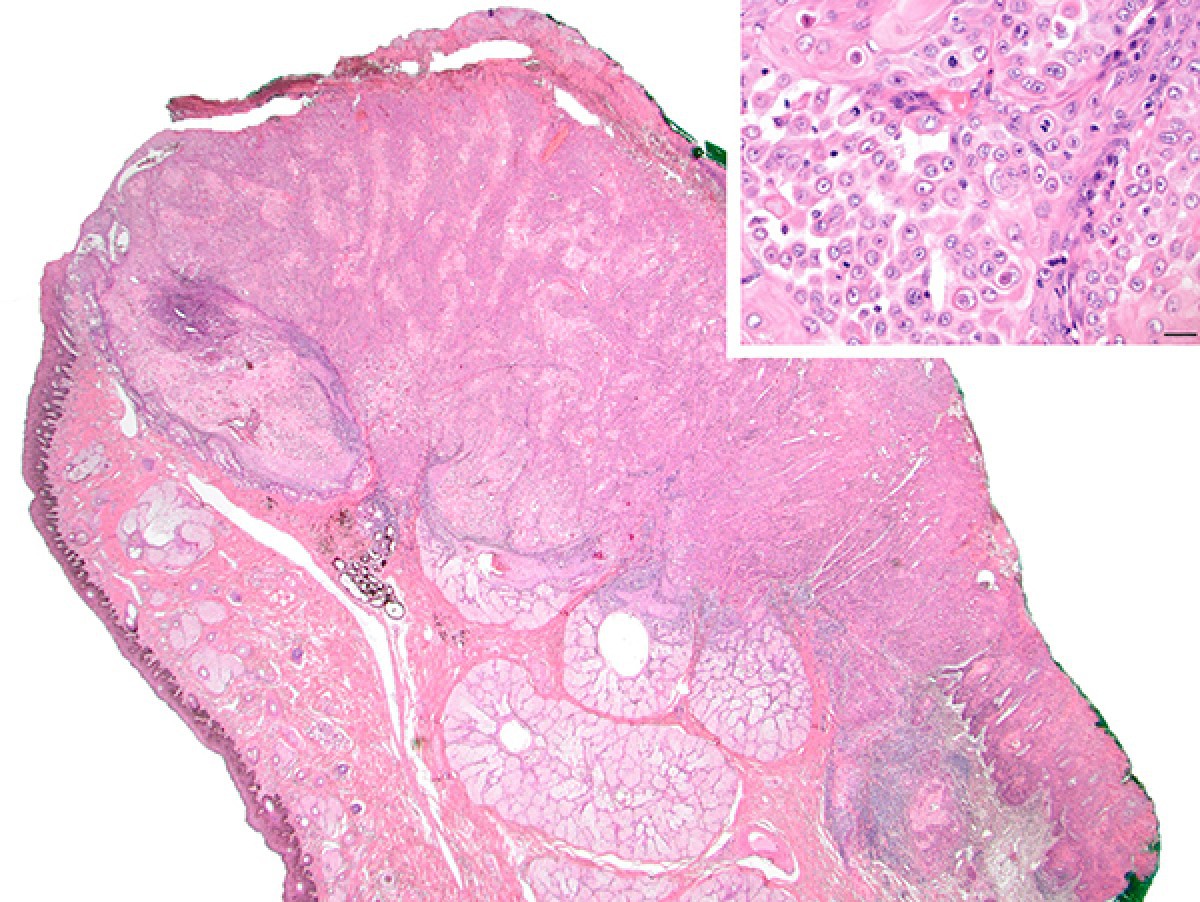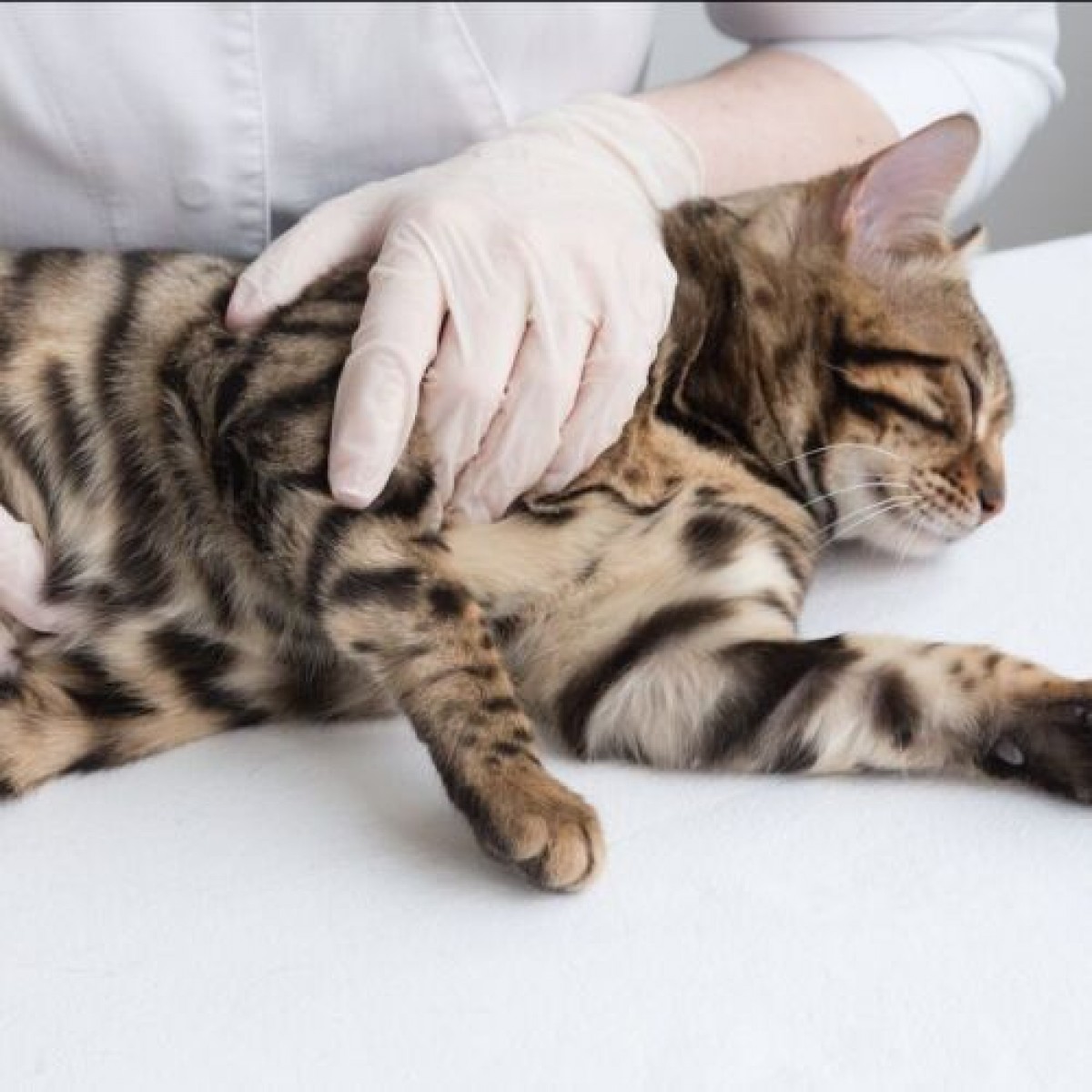Advances in the treatment of squamous cell carcinoma in horses
This new study offers important findings on the development of the second most frequent tumor in this species.
A new study, led by researchers from the Royal Veterinary College (RVC), King's College London (KCL), the University of Edinburgh, and the University College London (UCL), has made a significant advance in the understanding of squamous cell carcinoma (SCC). ), a type of cancer that frequently occurs in horses.
SCC affects the genitals, the eyes, or the skin around the eyes. Tumors often have a reserve to poor prognosis, and available therapeutic approaches have variable success rates. Unfortunately, euthanasia for welfare reasons is necessary in a significant number of cases.
The keys to the aggressiveness of the tumor
Before this new research was published, pathologists and researchers Dr. Alejandro Suárez-Bonnet and Professor Simon Priestnall, both from the RVC, had already conducted research showing that equine SCC affects the penis often acquires the ability to degrade the extracellular matrix and become much more biologically aggressive. This is known as the "epithelial to mesenchymal transition."
This new study, recently published in Scientific Reports, results from the use of both "classical" anatomical histopathology assessment and state-of-the-art artificial intelligence to demonstrate a correlation between chronic inflammation and equine papillomavirus infection. And the progression of SCC of the equine penis. Several additional cancer-related signaling molecules used in tumors of this location in human medicine were also studied.
One health applied to equine medicine.
Simon Priestnall, Professor of Veterinary Anatomical Pathology at RVC, said: "Equine SCC is the second most common type of cancer in horses, with a variable prognosis, so we are delighted to have made this breakthrough that provides further understanding. And can lead to more effective treatments for horses and their owners. This project shows what can be achieved when different organizations work together towards a common goal. We hope that the similarities between the tumors in horses and people can offer real benefit. One Health ”.
Dr. Alejandro Suárez-Bonnet, Professor of Comparative Pathology at RVC, said: “I am delighted with the results of this study, which we hope will pave the way to improve the prognosis of horses diagnosed with SCC. However, our work is not done. With the help of a grant from the Horse Race Betting Levy, Simon and I lead a project investigating SCC of the penis, eye, and vulva in horses from a broader perspective. We hope to identify whether there is variability between the infectious status of the equine papillomavirus, the morphological and microscopic difference, and the progression of cancer to identify possible therapeutic targets, as well as diagnostic markers with prognostic implications to obtain maximum benefit. for this species ".
References
Arthurs C, Suarez-Bonnet A, Willis C, Xie B, Machulla N, Mair TS, Cao K, Millar M, Thrasivoulou C, Priestnall SL, Ahmed A (2020) Equine penile squamous cell carcinoma: expression of biomarker proteins and EcPV2. Scientific Reports 12; 10 (1): 7863. doi: 10.1038 / s41598-020-64014-3.
Suárez-Bonnet A, Willis C, Pittaway R, Smith K, Mair T, Priestnall SL (2018) Molecular carcinogenesis in equine penile cancer: A potential animal model for human penile cancer. Urologic Oncology. 36 (12): 532.e9-532.e18 doi: 10.1016 / j.urolonc.2018.09.004
New study heralds breakthrough for treatment of common equine cancer. Royal Veterinary College.














List
Add
Please enter a comment